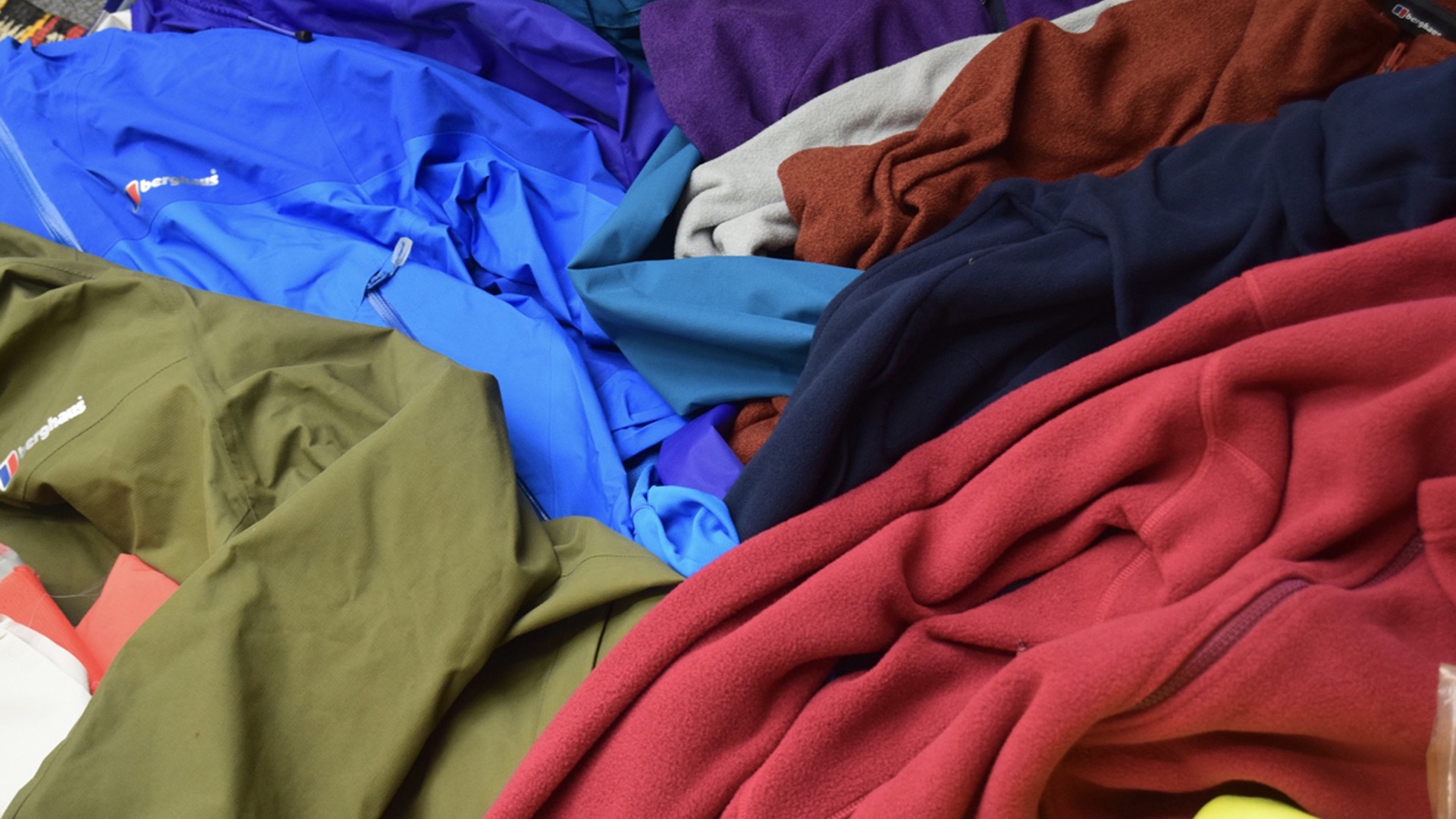Finally, you can recycle your old polyester running and hiking gear
A first-of-its-kind polyester recycling plant aimed at increasing garment circularity has opened for production in the UK

Many of us who love hitting the trails would theoretically like to do so in natural fabrics like merino wool, but in reality, it's hard to deny the benefits of synthetic materials. Nylon and polyester abound in outdoor gear, from your fleece jackets to your best camping tent, because they're strong, lightweight, water-repellent and quick drying – all wonders when you're fending off the elements.
The problem with polyester and other similar materials, however, is that they're made out of microplastics, which means they don't biodegrade and, until now, they've been near-impossible to recycle.
While plastic bottles are regularly scooped out of our oceans and turned into backpacks and park benches, most garments and other textile products cannot be recycled. However a new joint venture between the Salvation Army Trading Company and Project Plan B has begun operations in England that aims to change that.
Known as Project Re:claim, the Northampton plant is described as the first commercial-scale, post-consumer polyester recycling plant of its kind in a press release. Across the UK, many consumers drop their old clothes off at Salvation Army clothing donation banks assuming that if they can't be reused, they'll be recycled, however polyester garments largely end up in the landfill.
“In the UK alone, 300,000 tonnes of textile items are discarded into household waste, including polyester," says Tim Cross, CEO of Project Plan B.
"With this project, we can now save that waste and return it to supply chains. It’s a carbon saving, planet saving solution, and it plays a significant role in helping our collective journey to Net Zero.”

The new plant will use "cutting edge technology" to recycle garments and other textiles into pellets which can be spun into yarn for use in textiles along with other industrial applications, and supply the raw material back into the fashion and textiles industries to increase the circularity of polyester products. The plant reports it is on track to recycle 2,500 tonnes of unwanted polyester this year.
All the latest inspiration, tips and guides to help you plan your next Advnture!
As we've previously reported, the outdoors industry is one of the worst offenders when it comes to carbon footprint, largely owing to the fact that outdoor gear takes more abuse than fashion and streetwear. Though improving recycling capabilities is a giant step in the right direction, you can also do your part by learning how to keep your kit in good condition. Read our article with pro tips for extending the life of your gear to learn how to keep your old puffer jackets and well-worn trail running shorts from ending up in the landfill.
Julia Clarke is a staff writer for Advnture.com and the author of the book Restorative Yoga for Beginners. She loves to explore mountains on foot, bike, skis and belay and then recover on the the yoga mat. Julia graduated with a degree in journalism in 2004 and spent eight years working as a radio presenter in Kansas City, Vermont, Boston and New York City before discovering the joys of the Rocky Mountains. She then detoured west to Colorado and enjoyed 11 years teaching yoga in Vail before returning to her hometown of Glasgow, Scotland in 2020 to focus on family and writing.

